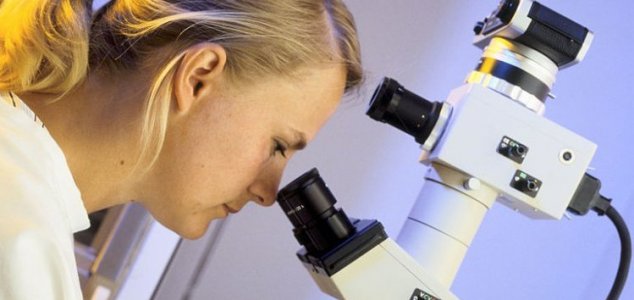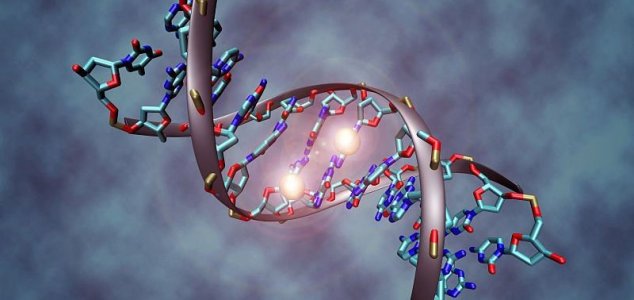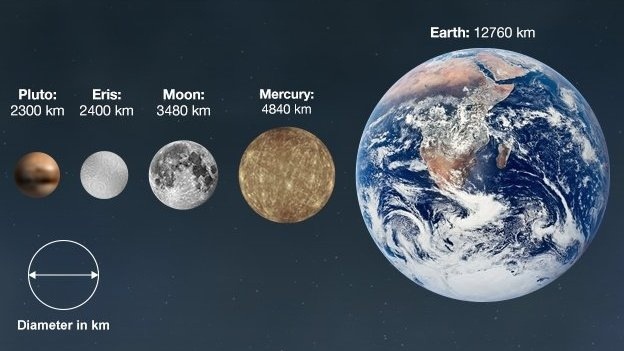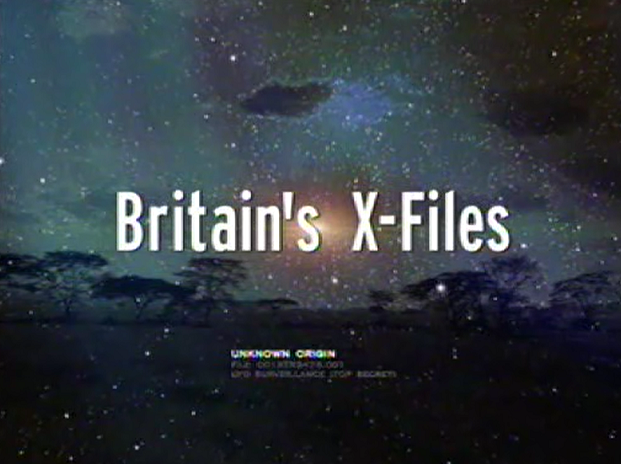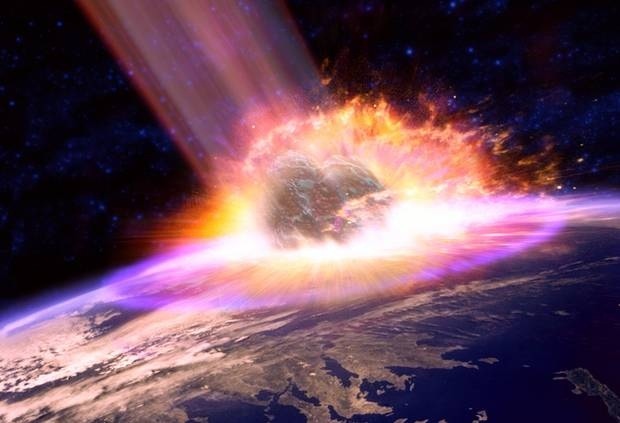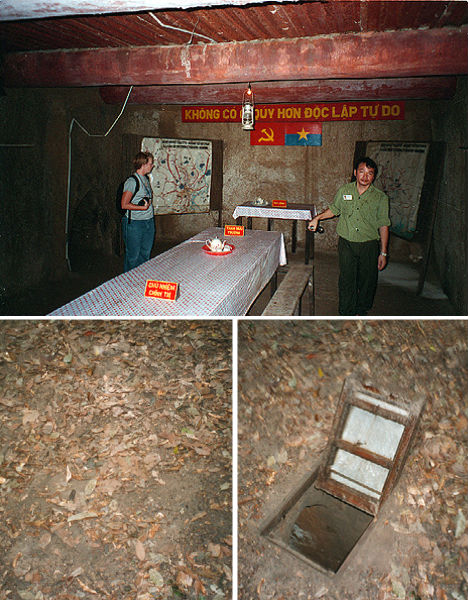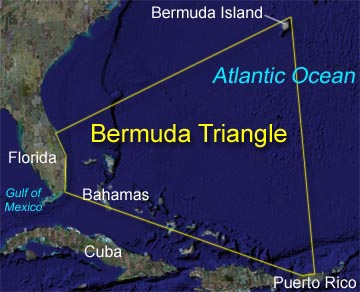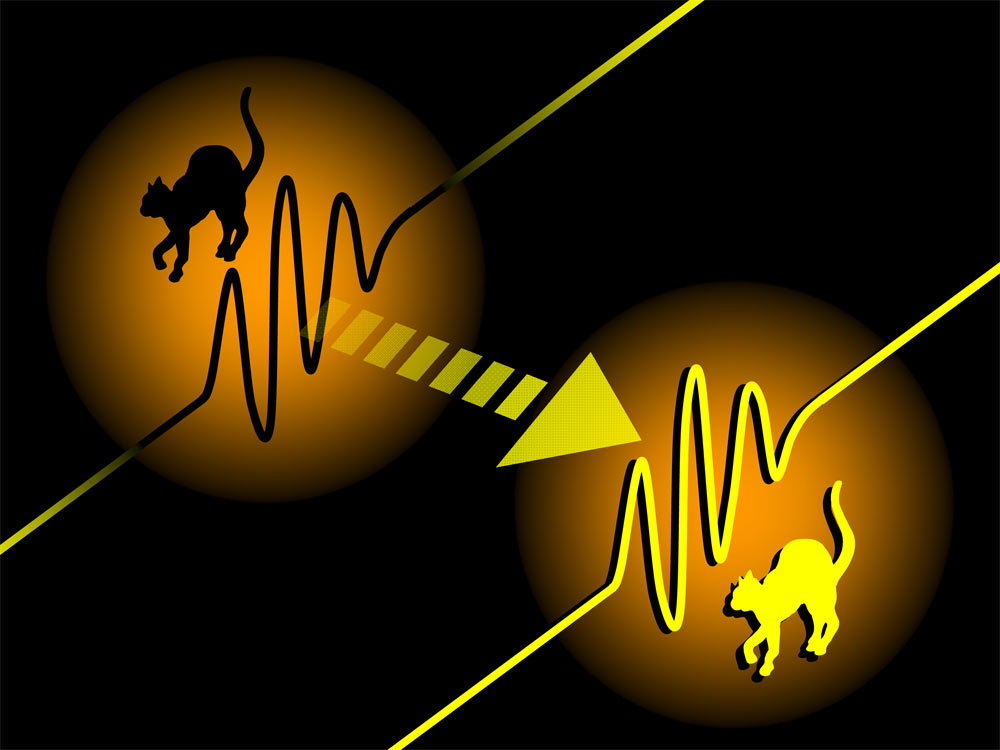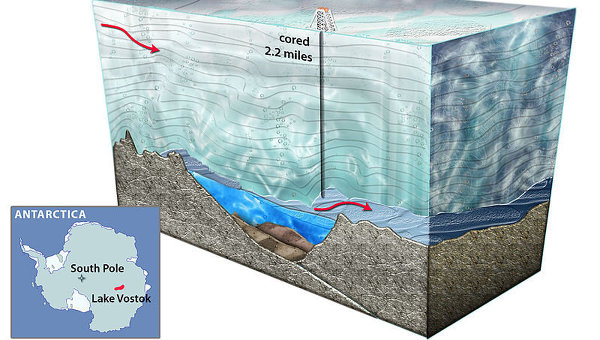
A preliminary examination of water samples from the ancient subglacial Lake Vostok near the South Pole indicated that its inhabitants are not to be found anywhere else on Earth, a member of the research team told RIA Novosti.
The species of bacteria, whose traces were found in probes of water from Lake Vostok, do not belong to any of the 40-plus known subkingdoms of bacteria, said Sergei Bulat, a researcher at the Laboratory of Eukaryote Genetics at the St. Petersburg Nuclear Physics Institute.
“After excluding all known contaminants…we discovered bacterial DNA that does not match any known species listed in global databanks. We call it unidentified and ‘unclassified’ life,” Bulat said.
Seven samples of the same species of bacteria were found in water frozen on the head of the drill that was used in 2012 to reach the lake, covered by a 3.5-kilometer-thick ice sheet, but the match between its DNA and any known organisms never exceeded 86 percent, while a match of under 90 percent is already enough to indicate a new species, Bulat said.
Attempts to build a phylogenetic tree for the newly discovered microorganism, which indicates a species’ evolutionary relationship to other species, showed that the Antarctic bacterium did not fit any of the main categories of microorganisms in its taxonomic domain.
“If it were found on Mars, people would call it Martian DNA. But this is DNA from Earth,” Bulat said.
The tests are ongoing, but are unlikely to disprove the results, the researcher said. He added that more samples are needed for conclusive proof, possibly to be found in water from the lake obtained during a new drilling season earlier this year and on its way to Russia by ship.
Suspense over life under Antarctic ice has been building ever since drilling began in 1989 to reach Lake Vostok, which could have been isolated from the outside world as early as 17 million years ago. Drilling through the ice without contaminating the lake took the Russian team at Station Vostok, located just above the lake, 23 years to complete.
Scientists suspected that unique species of extremophile microbes, sustained by geothermal heat and capable of surviving in Vostok’s extreme oxygen concentration, could have evolved in the lake. However, an early study of samples of surface water from the lake, published last year, found no unique lifeforms, prompting speculation that the lake may, after all, be devoid of life – a theory that appears to have been disproved by the more recent findings.
Source EnRia
Originally posted 2016-05-02 12:27:56. Republished by Blog Post Promoter

![Antarctic-Lake[1]](https://coolinterestingnews.com/wp-content/uploads/2013/03/antarctic-lake1.jpg)
